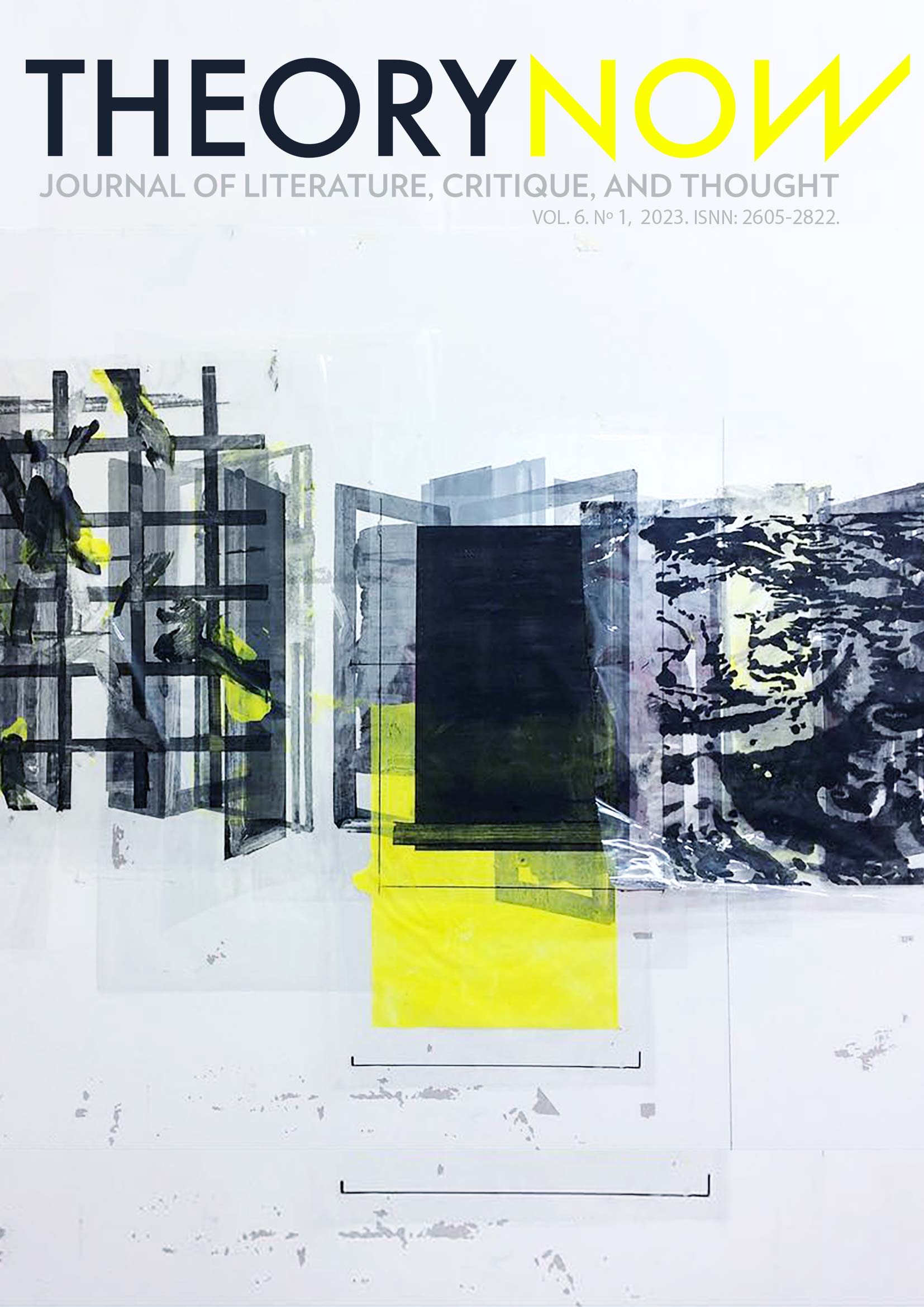Between Amniotic and Semiotic: The Kristevan Maternal Body in Contemporary British Women’s Fiction
DOI:
https://doi.org/10.30827/tn.v6i1.26185Keywords:
Motherhood, Julia Kristeva, Ambivalence, Maternal Body, British Women's LiteratureAbstract
From her seminal study Powers of Horror (1980) to her more recent conceptualization of maternal reliance (2014), the attendant ambivalence of motherhood has been both a recurring theme in Julia Kristeva’s writing, as well as her dominant method to demonstrate the affinities between bodily transformation and psychic development. At the same time, the post-war literary narration of motherhood’s “impossible choices”, as one critic has written (Harnett 2019), has left scattered but memorable marks on the contemporary British literary canon. Experimental as well as established British women writers have attempted to document the affective ebb and flow of the maternal body as well as motherhood itself both as an individual experience and as a cultural and socioeconomic institution (Staub 2007). This essay examines such literary works from a Kristevan perspective, attempting a literary tracing of the herethics of maternal love (Kristeva 2014) in selected British women authors who have heret(h)ically imagined and articulated maternal ambivalence in the interwar and contemporary era. Employing the post-realist fiction of Olive Moore (1939), Doris Lessing (1988), and Jessie Greengrass (2018) as a springboard for a Kristevan analysis of maternal bodies, it is argued that the conceptualization of a herethics of maternal love finds its literary counterpart in a continuous tradition of women’s exploration of the ambivalent mother through an experimental narrative style, which in turn mirrors the construction of a new maternal body.
Downloads
References
Adelman, Janet. Suffocating Mothers: Fantasies of Maternal Origin in Shakespeare’s Plays, Hamlet to the Tempest. New York, Routledge, 2012.
Arya, Rina, and Nicholas Chare. Abject Visions: Powers of Horror in Art and Visual Culture. Manchester, Manchester University Press, 2016.
Bourgeois, Louise. Maman. 1999, London, Tate Modern.
____. Topiary IV. 1999, private collection.
Chodorow, Nancy. The Reproduction of Mothering: Psychoanalysis and the Sociology of Gender. Berkeley, University of California Press, 1978.
Clark, Emily. “Re-Reading Horror Stories: Maternity, Disability and Narrative in Doris Lessing’s The Fifth Child.” Feminist Review, no. 98, 2011, pp. 173–89.
Ferrante, Elena. The Lost Daughter. New York, Penguin, 2008.
Franks, Matt. “Mental Inversion, Modernist Aesthetics, and Disability Exceptionalism in Olive Moore’s Spleen.” Journal of Modern Literature, vol. 38, no. 1, 2014, pp. 107–27.
Greengrass, Jessie. Sight. London, John Murray, 2018.
Hanson, Clare. “The Maternal Body”. The Cambridge Companion to the Body in Literature, edited by David Hillman and Ulrika Maude, Cambridge, Cambridge University Press, 2015, pp. 87–100.
Harnett, Emily. “Doris Lessing’s ‘The Fifth Child’ and the Spectre of the Ambivalent Mother”. The New Yorker, 11 May 2019. www.newyorker.com, https://www.newyorker.com/books/second-read/doris-lessings-the-fifth-child-and-the-spectre-of-the-ambivalent-mother. Accessed August 12, 2022.
Heti, Sheila. Motherhood. London, Vintage, 2018.
Kingsley Erin M. ‘“In the centre of a circle’: Olive Moore’s Spleen and Gestational Immigration”. Feminist Modernist Studies, vol. 1, no.1-2, 2018, pp. 138-156.
Kristeva, Julia. “Motherhood according to Giovanni Bellini”, Desire in Language: A Semiotic Approach to Literature and Art, edited by Leon S. Roudiez, translated by Thomas Gora et al. New York, Columbia University Press, 1980, pp. 237-270.
____. Revolution in Poetic Language, translated by Margaret Walker. New York, Columbia University Press, 1984.
____. “Stabat Mater”, translated by Arthur Goldhammer. Poetics Today, vol. 6, no. 1/2, 1985, pp. 133-152.
____. Powers of Horror: An Essay on Abjection. 1982. Translated by Leon S. Roudiez. New York, Columbia University Press, 2002.
____. “Motherhood Today”. October 28, 2005. http://www.kristeva.fr/motherhood.html. Accessed 2 April 2022. Talk.
____. Kristeva, Julia. “Reliance, or Maternal Eroticism.” Journal of the American Psychoanalytic Association, vol. 62, no. 1, 2014, pp. 69–85,
Lessing, Doris. The Fifth Child. Broadway, NY, Harper Perennial, 2007.
Margaroni, Maria. “‘The Lost Foundation’: Kristeva’s Semiotic Chora and Its Ambiguous Legacy.” Hypatia, vol. 20, no. 1, 2005, pp. 78–98. http://www.jstor.org/stable/3810844. Accessed 23 Aug. 2022.
Marland, Hilary. Dangerous Motherhood: Insanity and Childbirth in Victorian Britain. New York, Springer, 2004.
Maushart, Susan. The Mask of Motherhood: How Becoming a Mother Changes Our Lives and Why We Never Talk About It. London, Penguin, 2000.
Miller, Elaine. Head Cases: Julia Kristeva on Philosophy and Art in Depressed Times. New York, Columbia University Press, 2014.
Moore, Olive. Spleen. 1939. Dallas, TX., Dalkey Archive Press, 1996.
Nikolchina, Miglena. “Motherhood and the Machine.” Journal of French and Francophone Philosophy - Revue de la philosophie française et de langue française, vol. XXI, no 2, 2014, pp 62-69.
Oakley, Ann. Women Confined: Towards a Sociology of Childbirth. New York, Schocken Books, 1980.
Rich, Adrienne. Of Woman Born: Motherhood as Experience and Institution. New York, Norton, 1976.
Sheehy, Maura. “Anonymous: Floaters.” With Culture in Mind, Muriel Dimen edited by Muriel Dimen, New York, Routledge, 2011, 99-106.
Shriver, Lionel. We Need to Talk about Kevin. 2003. London, Serpent’s Tail, 2010. Staub, Susan C. The Literary Mother: Essays on Representations of Maternity and Child Care. Jefferson, NC, McFarland Publishers, 2007.
Susini, Clemente. Anatomical Venus. C. 1770-1790, Florence, La Specola. Yoder, Rachel. Nightbitch. London, Random House, 2021.
Downloads
Published
How to Cite
Issue
Section
License
Theory Now. Journal of Literature, Critique, and Thought is an immediate open-access publication which is available at no cost for readers and authors alike. Authors are not charged any kind of fee for the editorial processing of their articles. Reading, downloading, copying, distributing, printing, searching, linking or reusing all published articles for non-commercial uses is allowed on the condition of citing the author, the journal and the editing body. All intellectual material published in this journal is protected under a Creative Commons Attribution-NonCommercial 3.0 Spain license.
Dissemination of the articles in social (Facebook, Twitter, Linkedin, etc.) and scientific networks (ResearchGate, Academia.edu, etc.), public repositories at universities and other institutions, blogs, personal or institutional websites, Google Scholar, ORCID, ResearchID, ScopusID, etc. is strongly encouraged. In all cases, the intellectual property of the articles and any possible monetary profits derived from them belong exclusively to the authors.













